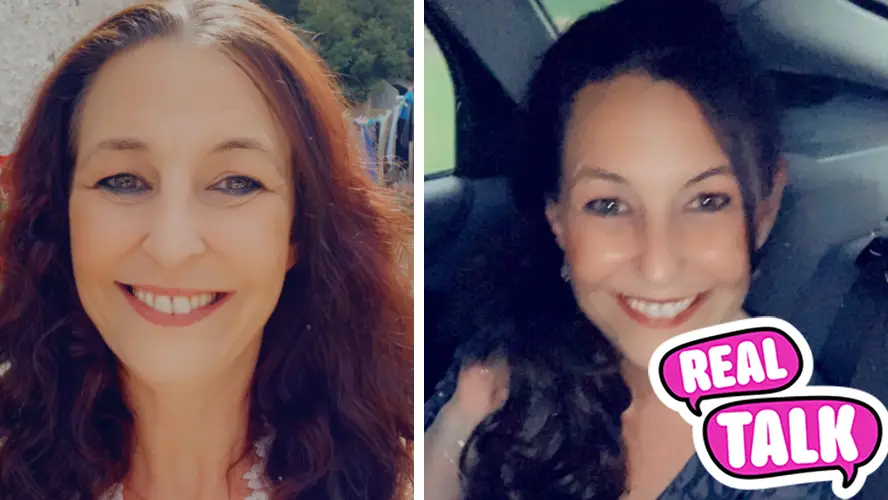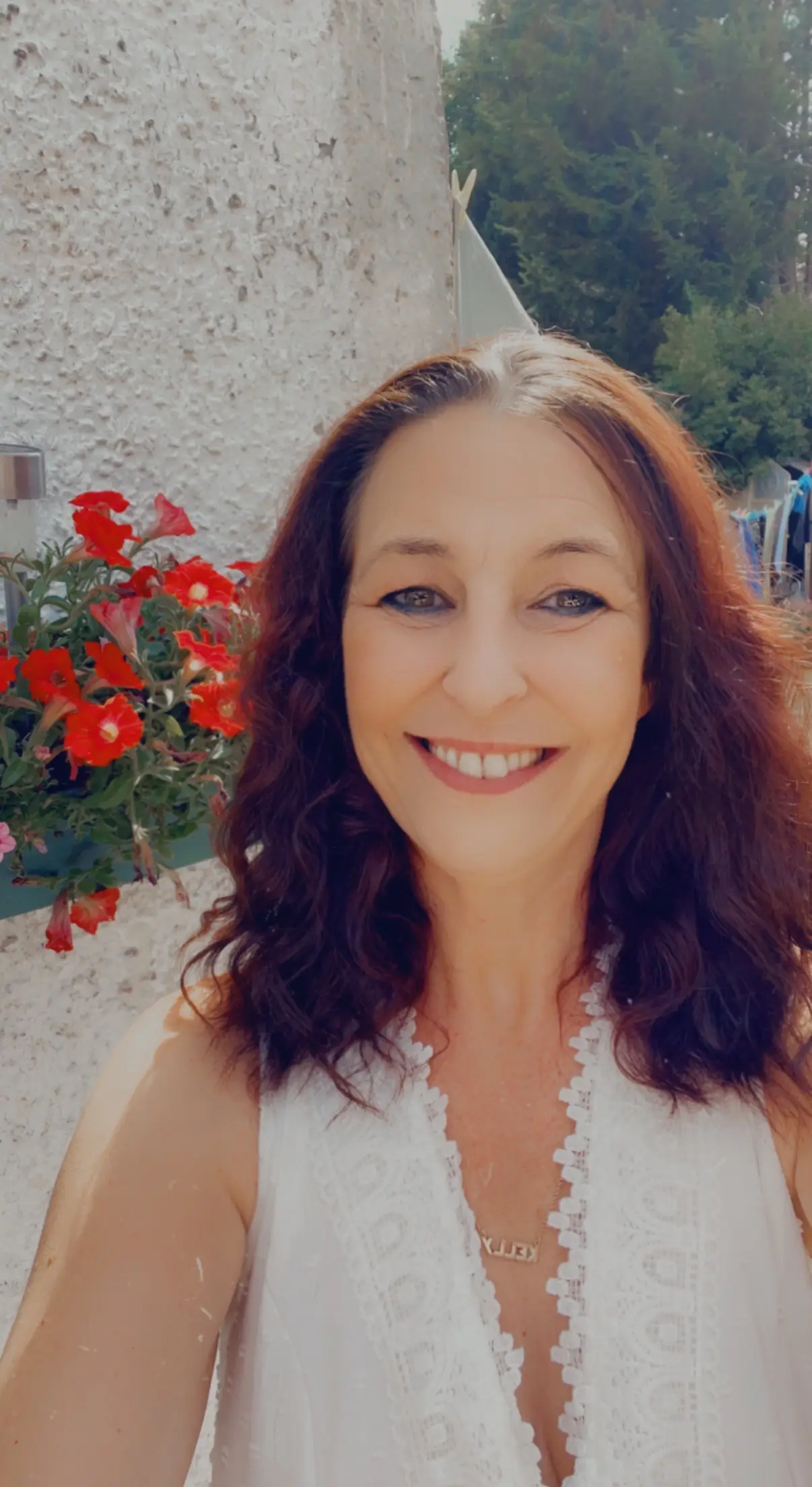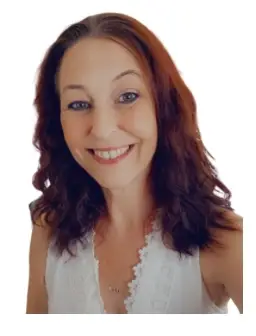
One woman was finally able to undergo a 'life-changing' operation after 'living on painkillers' and being forced to take huge amounts of time off work due to symptoms of endometriosis.
Kelly Hallett, founder of Hysterectomy Support and Shared Experiences, said she 'begged for a hysterectomy' for years before she was eventually able to undergo the procedure.

Kelly told Tyla: "I have had issues since I was a teenager. I had awful, heavy and prolonged menstrual cycles that were painful."
Advert
Kelly suffered with 'increasing symptoms' and claims she saw 'so many different doctors and specialists' that she eventually 'lost count' - until one day in 2001 she 'self-diagnosed' with endometriosis; a condition characterised by 'cells similar to the ones in the lining of the womb (uterus) [being] found elsewhere in the body.'
Around 1.5 million women and people assigned female at birth are currently living with the chronic condition in the UK alone.

In spite of her growing list of symptoms, it wasn't until 2006 that Kelly underwent a laparoscopy procedure and had her suspicions confirmed: she had endometriosis.
The symptoms 'ruled every single day' of Kelly's life, but she found herself getting 'passed around' by doctors, none of who 'really did anything' to help her treat her pain.
In total, she experienced two decades of being 'dismissed and unheard' by health professionals before she found a surgeon and an endometriosis specialist who 'changed [her] life'.
"I was finally heard and helped," she said.
It can be difficult to diagnose and treat endometriosis due to the general lack of information, funding and specialists available, which can explain why no doctors seemed to be able to help Kelly.
Meanwhile, her condition was starting to severely affect her career.
"I was having to take time off from work," she said. "I was bleeding for three weeks a month, sleeping on towels and was utterly exhausted.
"I was living off painkillers and spent several nights crying from pain on my floor. It felt like no-one would ever listen or help me."

The physical pain of endometriosis took a toll on Kelly's mental health when she saw a consultant who offered her anti-depressants.
"Of course I was depressed," she explained. "I was in pain and bleeding and had no life and no-one was understanding or offering more than the pill and painkillers. Anti-depressants were not going to help!"
"I liked my career. I had a great job," Kelly continued, but she became 'very conscious' of all the time she was having to take off due to her symptoms and medical appointments.
"I was quite senior, so I was quite lucky to be flexible," she continued.
"After nine surgeries, none of which helped, I begged for a hysterectomy."
Despite having three children already, Kelly was told that at 35 she was still 'too young' to receive the operation.
Kelly recalled: "Every doctor that dismissed my pain took another little part of me and made it harder to continue."

After she found the specialist, it took another two years for Kelly to get the hysterectomy she so desperately wanted.
She decided to pay privately for the procedure, and had to take off 10 weeks after she had her hysterectomy. The next year she went to have her ovaries removed, then two years after that she had to have an excision surgery.
In total, Kelly has now had 13 surgeries.
"It leaves you very tired," she noted. "And then you go through a process where it's really strange not to be in pain.
"I can't get used to not being in pain."

She added that the situation took 'a lot of adjusting to and grieving for'.
"Why didn't somebody try and help me before or listen to me? Or validate my pain? Why did none of my doctors tell me about how to treat endometriosis?" she asked herself.
The mum shares more about her story on her support website, where she explains that she understands 'first-hand the challenges and pain points that come with hysterectomy and other gynaecological disorders' having 'battled Endometriosis, Adenomyosis (when the lining of the womb buries into the muscular wall of the womb), and other issues' for 20 years.
Co-Founder of the PMDD Collective, Emily Holloway, told Tyla a little more about just how seriously menstrual-related issues can affect women at work. PMDD, or premenstrual dysphoric disorder, is a very severe and sometimes even disabling extension of premenstrual syndrome (PMS).
"Within the workplace, it's impacting women," Emily said. "They feel like they can't do their job."
She went on to highlight that she works with some 'incredible women' who are well-accomplished and established in their careers with 'high pressure jobs'.
For 'two weeks a month' women do 'incredible jobs', yet when their symptoms hit they simply 'can't do it', she explained.

Emily added that people end up losing their careers, opportunities and miss out on promotions due to their condition.
"So they're not able to thrive in the workplace as well as someone without it or as well as men," she added.
When asked about how workplaces navigate such issues, Emily revealed: "Most places are not doing anything about that in the workplace.
"There's no accommodations made for something that half the population roughly are experiencing," referring to the portion of the population who menstruate.
When Tyla asked Kelly about how she feels that 'hypothetical babies’ are being prioritised over real women’s pain from diagnoses such as endometriosis and PMDD, she answered: "I think that women’s health issues and suffering have been dismissed and ignored for far too long.
"Women should have choices and should get more support to help them to make the best choice for them."
Through Hysterectomy Support and Shared Experiences, Kelly has supported 'over 200,000 women' struggling with hysterectomies or hysterectomy-related issues.
"The importance of these online, safe community spaces as educators and supporters and advocates is something that healthcare professionals really need to recognise a little bit more," Kelly added.
"It's people like us and what we're doing and the PMDD collective that are filling those gaps."
When asked what advice she would give to other women struggling with similar symptoms, Kelly responded: "Get a doctor that you feel listens and understands you, educate yourself and refuse to be dismissed."
Tyla has reached out to the NHS and NICE for comment.
If you are suffering, you can find help, support and advice at Endometriosis UK.
Topics: Endometriosis, Health, Life, Real Life, PMDD